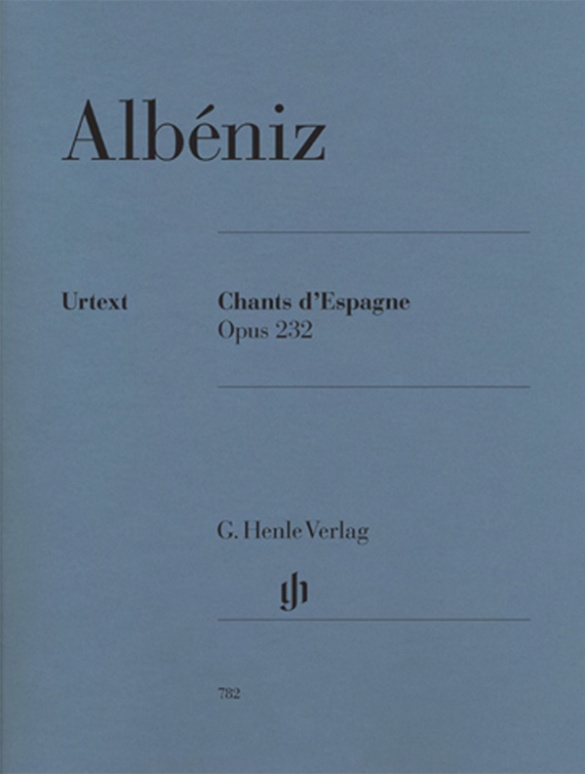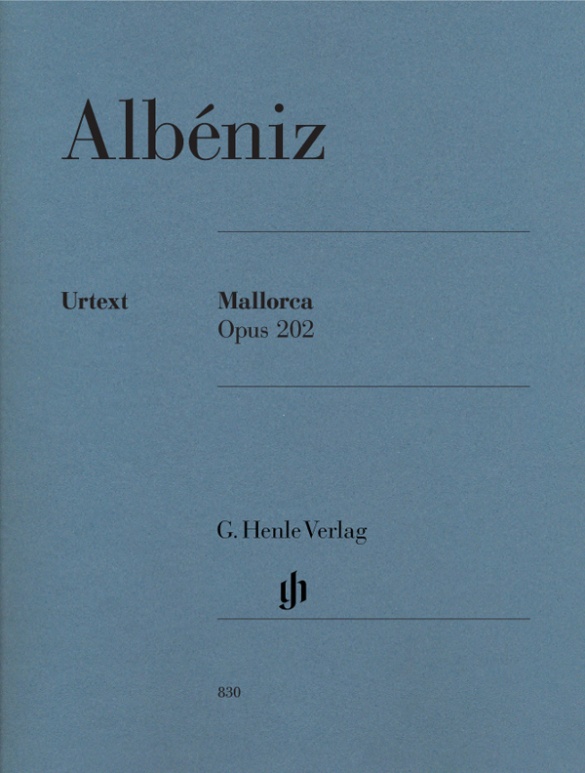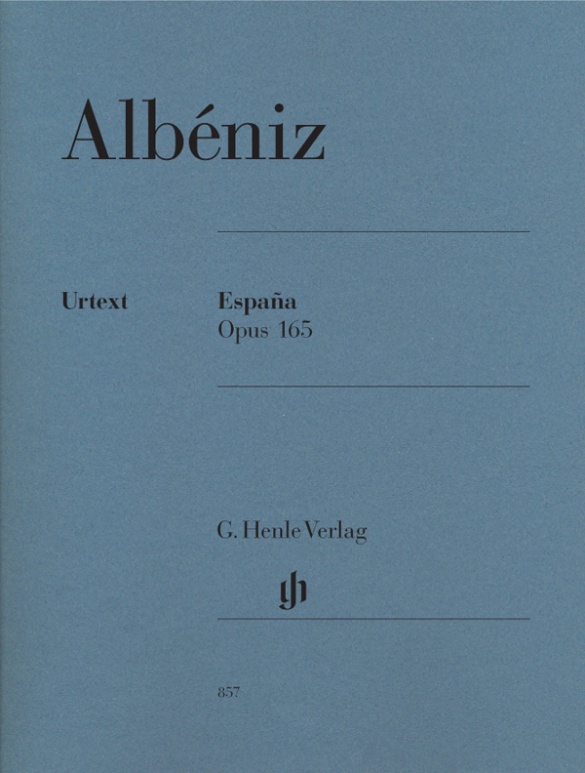

Isaac Albéniz
España op. 165
When the Catalan composer Albéniz wrote his six album leaves “España” at the age of 30, he was in London and his piano recitals were causing a sensation.
At these concerts he often performed his own compositions which were infused with the flair of his home country. Albéniz also gave the first performance of the piano cycle “España” in London, taking his audience on a journey through the Spanish countryside: exotic dance rhythms (“Zortzico”) and melodic folk tunes (“Serenata”) are preceded by the famous “Tango”, made known through many arrangements.
Content/Details
About the Composer
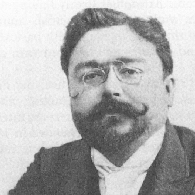
Isaac Albéniz
He numbers among the most important Spanish composers. His oeuvre consists predominantly of piano music and stage works.
| 1860 | Born in Camprodón (Gerona province) on May 29; soon thereafter his family moves to Barcelona; first piano instruction with his sister at age three and a half, first public performance at age five, subsequent piano studies with Narciso Oliveras. |
| from 1867 | Eventful youth due to concert tours with his father and sister to Paris, the Spanish provinces, then on his own to Puerto Rico and Cuba. |
| 1876–79 | Studies in Brussels. |
| 1883–86 | Studies composition in Barcelona with Felipe Pedrell, who persuades him of the value of Spanish folk music. This results in piano compositions such as “Recuerdos de viaje,” Op. 71 (1886–87); “España: Seis hojas de album,” Op. 165 (1890); “Cantos de España,” Op. 232 (1891–94). |
| 1889 | Breakthrough as a pianist, concertizing in Paris and London. |
| 1890–93 | Engaged in London by the agent Henry Lowenfeld; operetta “The Magic Opal” (premiere 1893). |
| 1893 | Relocation to Paris, studies with Vincent d’Indy and Paul Dukas. |
| 1895/96 | Premieres in Barcelona of his operas “Henry Clifford” (1895) and “Pepita Jiménez” (1896) with Spanish colorings in the libretti and music. |
| 1898–1903 | He plans the trilogy “King Arthur” (“Merlin,” “Lancelot,” “Guenevere”), of which just “Merlin” is completed; concert performance of the original version does not take place until 1998. |
| 1905–08 | Composes “Iberia,” one of his chief works for piano, in which he reworks the sounds and rhythms of Spanish folk music. |
| 1909 | Death in Cambô-les-Bains (Basses-Pyrénées) on May 18. |
About the Authors

Norbert Müllemann (Editor)
Dr. Norbert Müllemann, born in 1976 in Cologne, studied musicology, German philology and philosophy at the University of Cologne whilst at the same time studying the piano at the Music Conservatory in Cologne.
In 2004 he began working at G. Henle Publishers as an intern. In 2005 he became a junior editor, whilst at the same time starting his doctorate at the Ludwig-Maximilians-Universität in Munich. He completed it in 2008 with a thesis entitled “Handschriften Frédéric Chopins bis 1830. Studien zur Authentizität, Datierung und Werkgenese”. Since 2008 Müllemann has been an editor at the publishing house, becoming editor-in-chief in 2017 and Head of Publishing in 2024. He has edited numerous Urtext editions for the publisher with a particular focus on the works of Frédéric Chopin.
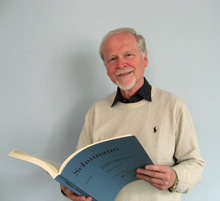
Rolf Koenen (Fingering)
As a pupil, Prof. Rolf Koenen, born in 1946 in Duisburg, had already had contact with Ewald Zimmermann, the first editor at the young publishing house. He studied the piano at the Folkwangschule in Essen with Detlef Kraus, with Ludwig Hoffmann in Munich and with Maria Tipo in Florence.
He gave concerts in a permanent duo partnership with Hansjörg Schellenberger, who was later to become the solo oboe player with the Berlin Philharmonic, and made several recordings with the Deutsche Grammophon-Gesellschaft, with Denon and Sony. Other chamber music partners included András Adorján, Stefan Dohr, Wolfgang Schulz, Claes H. Ahnsjö. Following a teaching position in Munich, Rolf Koenen was appointed as a professor at the Berlin University of the Arts in 1982.
Product Safety Informations (GPSR)

G. Henle Verlag
Here you can find the information about the manufacturer of the product.G. Henle Verlag e.K.
Forstenrieder Allee 122
81476 München
Germany
info@henle.de
www.henle.com
recommendations
autogenerated_cross_selling
Further editions of this title


